On May 24…
“There is nothing new in the world except the history you do not know. The only things worth learning are the things you learn after you know it all.”
~Harry Truman
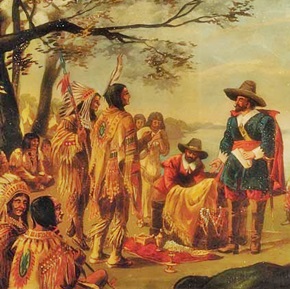
1626 – Peter Minuit bought a lot of land for very little money.
Minuit is generally credited with orchestrating the purchase of Manhattan Island for the Dutch from the Lenape Native Americans for just $24 in beads and trinkets.
Manhattan later became the site of the Dutch city of New Amsterdam, and the borough of Manhattan of modern-day New York City.
The $24 number comes from an 1846 calculation by American diplomat and historical scholar John Romeyn Brodhead in which he stated a 1626 letter from Dutch merchant Peter Schaghen – a West India Company merchant – indicated his countrymen “have purchased the Island of Manhattes from the savages for the value of sixty guilders,”
Brodhead converted those 60 guilders to U.S. dollars and got what was then $24. That same figure has been repeated for almost two centuries since, frozen in time and untouched by changes to the value of currency – but those guilders don’t stand at $24 today.
Today, they equal an amount worth approximately $1,250 … which still makes it an extraordinarily great deal.
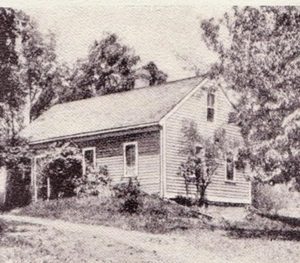
1830 – Sarah Josepha Hale’s Mary Had a Little Lamb was first published by the Boston publishing firm Marsh, Capen & Lyon.
The poem was inspired by a true story of a young girl named Mary Sawyer who, in 1816, took her pet lamb to school in Sterling, MA one day at the suggestion of her brother after the lamb had followed her from the family home (shown above).
Visiting school that morning was a young man by the name of John Roulstone, a nephew of the Reverend Lemuel Capen, who lived in Sterling.
It was the custom then for students to prepare for college with ministers, and Roulstone was studying with his uncle, and by chance, visiting the school that morning. He was so delighted by the incident he was inspired to write the three original stanzas of the poem.
The story was enlarged when Hale wrote the final twelve stanzas. In the late 1830s, Lowell Mason, music superintendent for the Boston school system, set the nursery rhyme to a melody.
Admit it, you’re humming the tune in your head. You know you are. 🙂
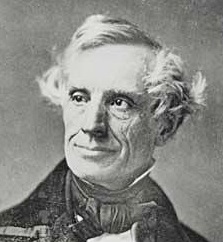
1844 – In a demonstration witnessed by members of Congress, American inventor Samuel F.B. Morse dispatched a telegraph message from the Supreme Court chamber in the basement of the U.S. Capitol building in Washington, D.C., to assistant Alfred Vail at the B&O’s Mount Clare Station in Baltimore.
The message – “What Hath God Wrought?” – was telegraphed back to the Capitol a moment later by Vail.
A decade later, more than 20,000 miles of telegraph cable crisscrossed the country.
Morse Factoid: Morse was a highly respected portrait painter early in life and it was that career that played an important part in the development of the telegraph.
In 1825, New York City had commissioned Morse to paint a portrait of the Marquis de Lafayette, the leading French supporter of the American Revolution, in Washington, DC.
While Morse was painting, a messenger delivered a letter from his father that read, “Your dear wife is convalescent”. The next day he received a letter from his father detailing his wife’s sudden death.
Morse immediately left Washington for his home in New Haven, CT. By the time he arrived, his wife had already been buried.
Heartbroken that for days he was unaware of his wife’s failing health and her death, he decided to explore a means of rapid long distance communication.
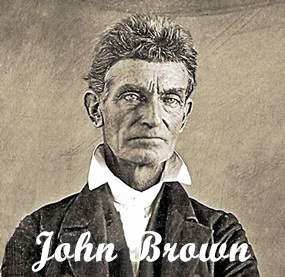
1856 – In reaction to the sacking of Lawrence, Kansas by pro-slavery forces on May 21, John Brown and a band of abolitionists killed five pro-slavery settlers north of Pottawatomie Creek in Franklin County, Kansas.
This was one of the many bloody episodes in Kansas preceding the Civil War, which came to be known collectively as “Bleeding Kansas”.
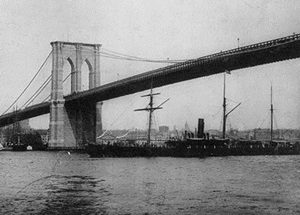
1883 – After 14 years and 27 deaths while being constructed, the Brooklyn Bridge over the East River was opened, connecting Manhattan and Brooklyn for the first time in history.
Thousands of residents of Brooklyn and Manhattan Island turned out to witness the dedication ceremony, which was presided over by President Chester A. Arthur and New York Governor Grover Cleveland.
Designed by the late John A. Roebling, the Brooklyn Bridge was the largest suspension bridge ever built to that date.

1941 – The Bismarck, Germany’s largest battleship, sent the HMS Hood, the pride of the British fleet, to the bottom of the North Atlantic, northeast of Iceland. Of the 1,421 on board the Hood, only three survived.
During the engagement, the Bismarck‘s fuel tank was damaged and Admiral Gunther Lutjens steered a course for the French coast.
The story continues in three days.
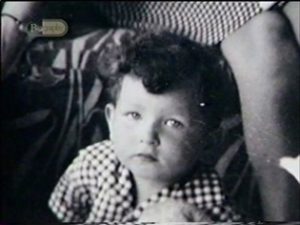
1941 – Robert Zimmerman was born in Duluth, Minnesota.
That name may not be familiar to some but you should all recognize the name he later adopted … Bob Dylan … and today, he turns 78.
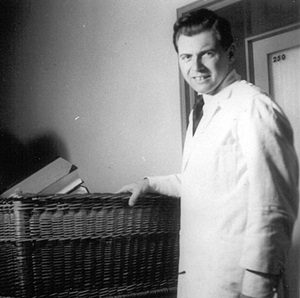
1943 – The extermination camp at Auschwitz, Poland, received a new doctor, 32-year-old Josef Mengele, a man who would earn the nickname “the Angel of Death.”
Upon arriving at Auschwitz, and eager to advance his medical career by publishing “groundbreaking” work, he began experimenting on live Jewish prisoners.
In the guise of medical “treatment,” he injected, or ordered others to inject, thousands of inmates with everything from petrol to chloroform.
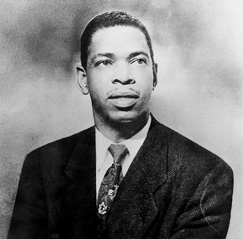
1963 – Elmore James, the “King of the Slide Guitar,” died of a heart attack at the age of 45.
His signature tune, Dust My Broom, was the surprise R&B hit of 1951. Over the next 12 years, James recorded more than 100 songs for a variety of small record labels and helped define the modern electric Chicago Blues Sound of today.
Considered the most influential slide guitarist of the postwar period, he was elected to the Blues Foundation’s Hall of Fame in 1980 and was inducted into the Rock and Roll Hall of Fame in 1992, in the “Early Influences” category.
He was immortalized in the Beatles song, For You Blue. While John Lennon played a lap steel guitar solo on the song, George Harrison encouraged Lennon by shouting out “Elmore James’ got nothing on this baby!”

1964 – Senator Barry Goldwater (R-Arizona), running for the Republican Party presidential nomination, made an epic gaffe.
Goldwater gave an interview in which he discussed the use of low-yield atomic bombs in North Vietnam to defoliate forests and destroy bridges, roads, and railroad lines bringing supplies from communist China.
During the storm of criticism that followed, Goldwater tried to back away from these drastic actions, claiming that he did not mean to advocate the use of atomic bombs but was “repeating a suggestion made by competent military people.”
Democrats painted Goldwater as a warmonger who was overly eager to use nuclear weapons in Vietnam. Though he won his party’s nomination, Goldwater was never able to shake his image as an extremist in Vietnam policies.
This image was a key factor in his crushing defeat by incumbent president Lyndon Johnson, who took 61.2 percent of the vote to Goldwater’s 38.5 percent.
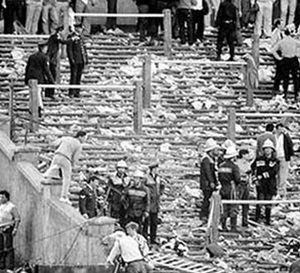
1964 – A referee’s call in a soccer match between Peru and Argentina sparked a riot. More than 300 fans were killed and another 500 people were injured in the violent melee that followed at National Stadium in Lima, Peru.
The match was a qualifier for the 1964 Olympics and the Peruvian fans were fiercely cheering on their team with only a few minutes left in a close game.
When the referee disallowed an apparent goal for Peru, the stadium went wild. The resulting panic and crowd-control measures taken caused stampedes in which people were crushed and killed.

1974 – Edward Kennedy “Duke” Ellington died at the age of 75.
In a career spanning five decades, he put an indelible stamp on 20th-century American music as an instrumentalist, as a composer, and as an orchestra leader.
Equally at home and equally revered in the Cotton Club and Carnegie Hall, if any musician ever defied categorization, it was Duke Ellington
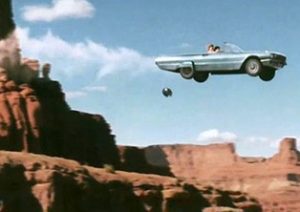
1991 – Thelma and Louise debuted in theaters, stunning audiences with a climactic scene in which its two heroines – in a vintage 1966 green Ford Thunderbird convertible – drove off a cliff into the Grand Canyon.
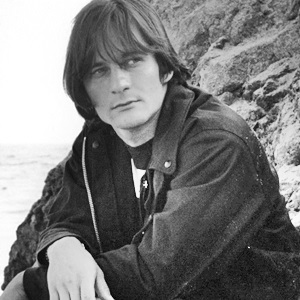
1991 – Singer/songwriter Gene Clark died at the age of 46 from natural causes brought on by a bleeding ulcer.
Clark was a founding member of The Byrds, who relied on his songwriting for much of their early success (I’ll Feel A Whole Lot Better, Here Without You, and Set You Free This Time, and as co-writer of Eight Miles High).
Following his departure from the band, Clark embarked on a solo career that while not commercially as successful as his time with the Byrds, was still critically acclaimed.
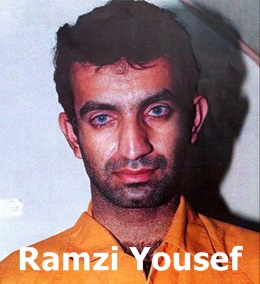
1994 – Four men convicted of bombing the World Trade Center with a truck bomb that detonated below the North Tower in 1993 learned their fate.
Mahmud Abouhalima, Mohammad Salameh, Nidal A. Ayyad, and Ahmed Ajaj were each sentenced to 240 years in prison.
In November 1997, two more were convicted: Eyad Ismoil, who drove the truck carrying the bomb, and Ramzi Yousef, the mastermind behind the bombings.
Yousef, who escaped to Pakistan several hours after the bombing, was captured in 1995. In addition to the World Trade Center bombing, he was one of the main perpetrators in the 1994 bombing of Philippine Airlines Flight 434.
He was a co-conspirator in the 1995 Bojinka plot; a large-scale, three-phase attack plan to assassinate Pope John Paul II, blow up 11 airliners in flight from Asia to the United States with the goal of shutting down air travel around the world, and crashing a plane into the headquarters of the CIA in Virginia.
After his arrest, Yousef – whose WTC plan was to have the North Tower topple into the South Tower, collapsing them both – made a chilling statement to investigators. “This is only the beginning.“
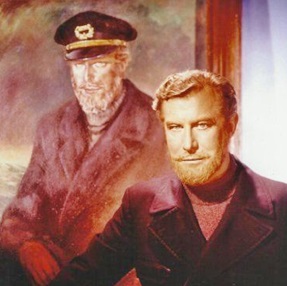
1997 – Actor Edward Mulhare died of lung cancer at the age of 74.
A highly successful Broadway actor early in his career, Mulhare made the switch to films in the mid-1960s, co-starring in Von Ryan’s Express, Our Man Flint and Caprice.
He was, however, best known for his starring roles in two television series: The Ghost & Mrs. Muir and Knight Rider.
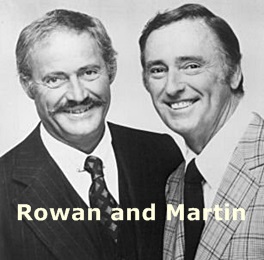
2008 – Comedian Dick Martin ( Rowan & Martin’s Laugh-In) died of respiratory complications at the age of 86. He had lost the use of a lung as a teenager and suffered respiratory problems later in life.
Compiled by Ray Lemire ©2019 RayLemire.com. / Streamingoldies.com. All Rights Reserved.